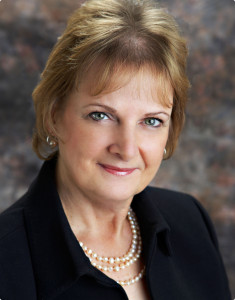As Armstrong heads to NM Legislature, conflict-of-interest questions arise

POTENTIAL CONFLICTS?: Debbie Armstrong runs the day-to-day operations of New Mexico’s high-risk insurance pool. She’s also about to become a member of the state legislature.
By Rob Nikolewski │ New Mexico Watchdog
SANTA FE, N.M. – Debbie Armstrong will become a member of the New Mexico Legislature in January.
She’s also running the state’s high-risk insurance pool.
Is that a potential conflict of interest?
Armstrong doesn’t think so, but her status will soon be a topic of conversation when the board at the New Mexico Medical Insurance Pool meets next month.
“Conflict of interest is a really important thing in New Mexico, to make sure we keep credibility in government in what we do,” said John Franchini, the state’s Superintendent of Insurance and chairman of the NMMIP board.
“Anytime that you’re looking at government spending with folks that are going to benefit from that, I think it deserves a higher level of scrutiny,” Jason Sandel, one of the board’s members, told New Mexico Watchdog.
Armstrong won the Democratic Party primary in June in House District 17 in Albuquerque. She has no Republican opponent in the November general election so she has a clear path to become a member of the Legislature when it convenes a 60-day session in January 2015.
She’s president of Delta Consulting Group, which won an extension worth up to $600,000 in March to manage the high-risk insurance pool for the state. Click here to read the New Mexico Watchdog story about that.
As executive director of the pool, Armstrong is in charge of the day-to-day operations of NMMIP, which was created by the New Mexico Legislature and, according to Sandel, handles $250 million annually. The pool serves about 5,600 patients.
“This is not a contract with the state,” Armstrong said. “The pool is not a state agency. It receives no state appropriations.”
Armstrong said the high-risk pool is about 25 percent funded through premiums, a “very small federal grant” and the rest is paid for by insurance carriers in the state who take part.
“I fully expect to recuse myself (in legislative votes) if there’s anything directly related to the pool and, potentially, my contract,” Armstrong said.
“I don’t have a definitive opinion yet,” said Gabriel Parra, staff attorney for Presbyterian Healthcare Services and a member of the NMMIP board. “My thought on it is, because we have a citizen-based Legislature, we should understand what are the rules when anyone — an insurance professional, a lawyer, anyone else — is in the Legislature and has an opportunity to vote on matters that affect them. We should look through that.”
CHANGING THE POOL: Any changes to the New Mexico Medical Insurance Pool, which has 5,600 patients, will probably need to go through the Legislature.
Members of the New Mexico Legislature do not receive salaries, but they do get a $159 per diem and are reimbursed for travel.
Armstrong said she would not recuse herself from health care issues that don’t affect NMMIP.
“That’s my area of expertise,” she said. Armstrong was secretary of the New Mexico Aging and Long Term Services Department under Gov. Bill Richardson from 2004-2007. “I won’t stay out of health care (issues) in general but certainly anything that would directly impact the pool and impact my contract with the pool, I would recuse myself from.”
Officials at Delta Consulting have close ties to the Democratic Party in the state.
One of the co-founders at Delta is Michelle Lujan Grisham, D-N.M., who was elected to the U.S. House of Representatives in 2012 and is running for re-election this fall. According to Lujan Grisham’s campaign website, she used to be president and co-founder at Delta.
“She and I started Delta Consulting,” Amstrong said. “She is still a part owner but she has no operational authority at all. She’s not the board, not an officer, nothing.”
Armstrong told New Mexico Watchdog she took leave from Delta to help Lujan Grisham run her state office but “I don’t do anything official for Michelle anymore.”
Armstrong said she has placed her daughter on Delta’s board and that Lujan Grisham has placed one of her own daughters on the board. “It’s an unpaid board,” Armstrong said.
In addition, the CEO at Delta, Reena Szczepanski, is executive director of Emerge New Mexico, an organization that recruits Democratic women to run for office in the state.
“We’ve been engaged in politics,” Armstrong said. “Our work at Delta has been to do a little bit of work, mostly to manage a nonprofit organization, providing health care, health insurance … That’s how I make my business, which is not political.”
One potential issue is the existence of the state’s high-risk pool itself.
With the passing of the Affordable Care Act, about half of the 35 states that constructed high-risk insurance pools have eliminated — or in the process off eliminating — them because one of the major provisions in “Obamacare” prohibits insurance companies from denying patients policies if they have pre-existing conditions.
Any move to shut down the pool, Franchini said, would probably need to go through the Legislature.
In fact, any changes at all to the NMMIP — for instance, there is no requirement that recipients have to be U.S. citizens — may have to be made by the Legislature.
“How we deal with them is really a question for the Legislature because the statute doesn’t give us the authority to exclude them,” Parra said.
Franchini said he expects the NMMIP board to discuss Armstrong’s status in September.
“We will address this and we will get professional opinions from our attorneys as to how she should proceed,” Franchini said.
Contact Rob Nikolewski at rnikolewski@watchdog.org and follow him on Twitter @robnikolewski







